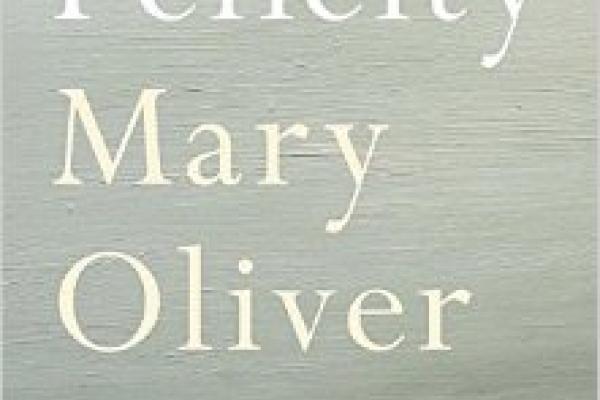I HAD GEARED myself up for a sort of Job-God exchange between Mary Oliver and some wild roses in the aptly named “Roses,” from her latest collection of poems, Felicity.
This is the scene: The narrator, full of poetic angst and existential fatalism, approaches some huddled roses and wonders in their direction: “What happens when the curtain goes / down and nothing stops it, not kissing, / not going to the mall, not the Super Bowl.”
I was ready for the roses to respond in a whirlwind full of rhetorical questions about the wonder and origin of creation. Instead they deflect the inquiry: “‘But as you can see, we are / just now entirely busy being roses.’”
And I laughed. In the past, Oliver’s poetry has caused me to cry over a dog (see “The First Time Percy Came Back”) and pray accidentally (see “The Summer Day”), but never before had her poems made me laugh.
In her 2014 collection Blue Horses, the flowers are “fragile blue.” They are “wrinkled and fading in the grass” until the next morning when somehow they crawl back up to the shrubs, bloom a bit, decide they want—just like all of us—“a little more of / life.” Now, in her latest collection of poetry, Oliver’s flowers are red, and they want as much life as they can get. They are carefree roses with a love of causal banter and a kind distaste for troubling existential questions.
Read the Full Article

